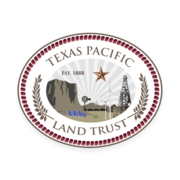
Texas Pacific Land Corp
NYSE:TPL

 Texas Pacific Land Corp
Revenue
Texas Pacific Land Corp
Revenue
Texas Pacific Land Corp
Revenue Peer Comparison
Competitors Analysis
Latest Figures & CAGR of Competitors

| Company | Revenue | CAGR 3Y | CAGR 5Y | CAGR 10Y | ||
|---|---|---|---|---|---|---|

|
Texas Pacific Land Corp
NYSE:TPL
|
Revenue
$705.8m
|
CAGR 3-Years
16%
|
CAGR 5-Years
8%
|
CAGR 10-Years
29%
|
|

|
EQT Corp
NYSE:EQT
|
Revenue
$5.6B
|
CAGR 3-Years
54%
|
CAGR 5-Years
5%
|
CAGR 10-Years
8%
|
|

|
Hess Corp
NYSE:HES
|
Revenue
$12.9B
|
CAGR 3-Years
20%
|
CAGR 5-Years
15%
|
CAGR 10-Years
2%
|
|

|
EOG Resources Inc
NYSE:EOG
|
Revenue
$23.7B
|
CAGR 3-Years
8%
|
CAGR 5-Years
7%
|
CAGR 10-Years
3%
|
|

|
Diamondback Energy Inc
NASDAQ:FANG
|
Revenue
$11.1B
|
CAGR 3-Years
18%
|
CAGR 5-Years
23%
|
CAGR 10-Years
36%
|
|

|
Conocophillips
NYSE:COP
|
Revenue
$54.7B
|
CAGR 3-Years
6%
|
CAGR 5-Years
11%
|
CAGR 10-Years
0%
|
|
Texas Pacific Land Corp
Revenue Breakdown
Breakdown by Geography
Texas Pacific Land Corp

Breakdown by Segments
Texas Pacific Land Corp

|
Total Revenue:
705.8m
USD
|
|
Lrm:
440.8m
USD
|
|
Oil And Gas Royalties:
373.3m
USD
|
|
Wso:
265m
USD
|
Texas Pacific Land Corp
Glance View
Texas Pacific Land Corp., with its roots stretching back to the late 19th century, has carved out a unique place in the American business landscape, primarily centered around land and mineral rights management. Originally established from the remnants of the Texas and Pacific Railway, the company transformed itself over the decades into a powerhouse in the management of vast land holdings in West Texas. These lands are rich with possibilities, not the least of which lie in the bounty of oil and gas resources beneath the surface. The company's extensive acreage in the Permian Basin, one of the most prolific oil and gas producing regions in the United States, forms the cornerstone of its financial model. By leasing these lands to oil and gas operators, Texas Pacific Land Corp. secures a steady stream of revenue through royalties, typically a percentage of the production value extracted from their land. Beyond oil and gas royalties, Texas Pacific Land Corp.'s business model integrates multiple revenue streams. It includes land sales, water services, and easements. The company takes advantage of its significant water rights to provide water solutions critical for hydraulic fracturing operations in the Permian Basin. Furthermore, Texas Pacific Land Corp. earns from infrastructure development, granting easements and rights-of-way for pipelines, power lines, and roads, which are essential as the energy landscape in West Texas evolves. This diversified revenue model ensures stability and growth, enabling Texas Pacific Land Corp. to continually benefit from the burgeoning energy industry while maintaining a lean operational structure. Through a combination of strategic leverage of land assets and innovative adaption to market needs, the company stands out as an exemplary model of how historical assets can drive modern economic success.

See Also
What is Texas Pacific Land Corp's Revenue?
Revenue
705.8m
USD
Based on the financial report for Dec 31, 2024, Texas Pacific Land Corp's Revenue amounts to 705.8m USD.
What is Texas Pacific Land Corp's Revenue growth rate?
Revenue CAGR 10Y
29%
Over the last year, the Revenue growth was 12%. The average annual Revenue growth rates for Texas Pacific Land Corp have been 16% over the past three years , 8% over the past five years , and 29% over the past ten years .

















































 You don't have any saved screeners yet
You don't have any saved screeners yet